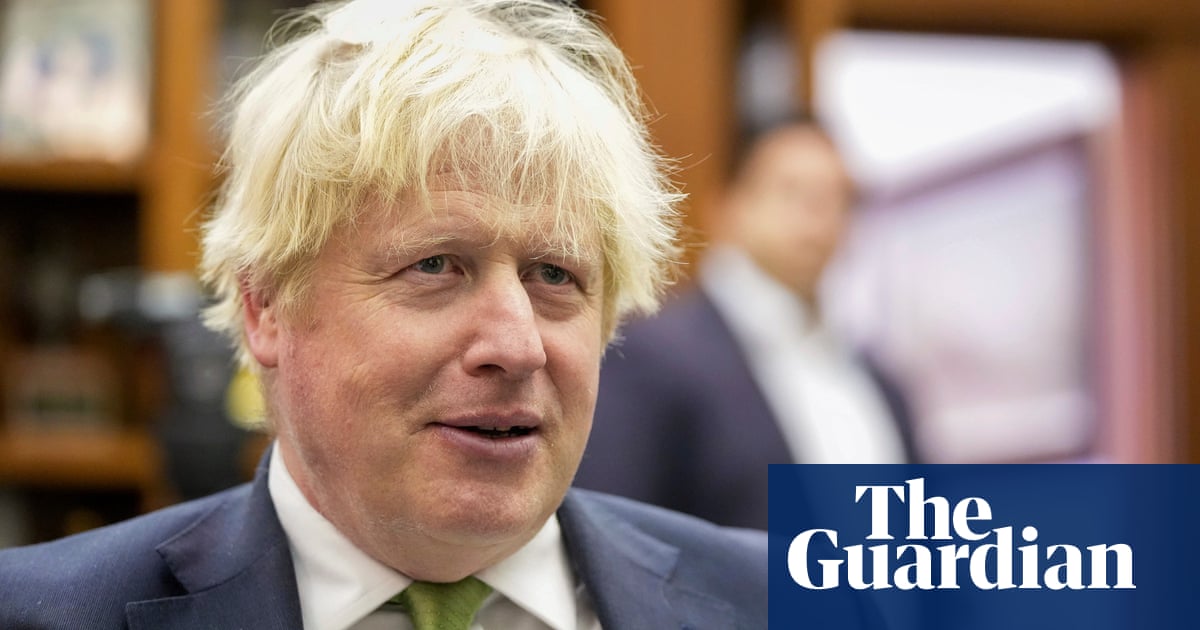
hat do politicians desperate for headlines always promise? They promise to build something. On the day I heard my penniless local youth club was about to close, Boris Johnson offered a staggering £100m every week for 20 years to build just one new railway, HS2.
Last weekend it was announced that two-thirds of small youth clubs in England were facing closure, with 20% already closing or closed and 30% likely to go by June. According to the charity UK Youth, these groups are in the absolute frontline of social work, at a time when an estimated 1.5 million young people are at risk of domestic upheaval, school rejection, gangs, drugs and prison. While the nation can worry over children and students facing the loss of exams, most will survive. It is those who fall through the net who may not – and the costs to society will greatly exceed the amount needed to support them now.
The chief reason for the apparently imminent collapse of youth clubs is that they are not a priority. Those who use them only become a charge on the state when such services have failed and young people are formally taken into custody or care. Even then they are not safe, given recent publicity for unregulated care hostels and cuts to probationary care. To me, a youth club comes before a school in priority, as a homeless shelter comes before a council estate.
Of the £750m supposedly assigned to charities under the Covid spending splurge, just £34m is going on youth care. This is after an extraordinary 23% fall in money for those services over the past 10 years of austerity. This is the result not just of Whitehall’s hostility to localism but of services such as youth clubs being seen as a discretionary luxury. They are as vital to community security as neighbourhood policing, but prime ministers never pledge them billions.
The political bias in favour of physical infrastructure against money for people is universal. Joe Biden’s most lavish gesture to his voters at the recent election was a pledge to spend $2tn on “roads, bridges and electric-car charging points” – though these are not even federal responsibilities. Spending huge sums on construction is customarily the action of autocrats and those craving immortality.
Egypt is now planning an entire new capital city in the desert. President Modi of India wants to surround Lutyens’ majestic Rajpath in Delhi with the blocks of his vast bureaucratic estate. China’s leaders spent $1.3tn on infrastructure in 2019, despite the Economist reporting that more than half of such spending is estimated to have “destroyed” economic value rather than created it.
Since I have never known a well-paid accountant to declare a government project loss-making in advance – not even HS2 – there is no sensible check on this extravagance. Future not current generations of taxpayers will usually have to find the money to pay for it. Ever since he was London mayor, Johnson was as mesmerised as George Osborne by the machismo of the hard hat. His fixation was on estuary airports, Olympic cities, super-sewers, zip-wires and garden bridges. He spent almost as much on not building the Thames garden bridge, £43m, than was needed just to prevent Hammersmith Bridge from rotting into disuse. The difference was that one was a headline, the other not.
A classic of Johnson’s infrastructure syndrome is the Nightingale hospitals. It beggars belief that no one in Downing Street asked if they could ever be adequately staffed. The answer was no, but no one dared give it. We now face precisely the capacity crisis the hospitals were intended to avert, while any doctor or nurse eager to come out of retirement is turned away by NHS bureaucracy.
When Johnson then announced his way out of the coronavirus recession last summer, he put on a hi-vis jacket and promised £5bn to “build back better”, pledging 29 road projects, 50 schools and countless colleges, prisons and hospitals. In today’s Whitehall it is a sin to be a human being rather than a concrete mixer.
The emphasis of government is on hospitals rather than doctors, on schools rather than teachers, on museums rather than their contents. Urban economists such as Richard Florida have pleaded for years for cities to be seen not as constructs but as hubs of creativity, as places where people can find excitement, companionship and safety.
This vision must underpin the revival of cities after the pandemic. Johnson’s legitimate concern for the resurgence of the north requires awarding its cities the ability to attract and retain human talent. This must lie in the quality of life and culture, the reduction of deprivation and care for the environment. It means reviving the boring things that are now being starved of money – gardens, pubs, concerts, day centres, youth clubs; not bridges, hard hats and headlines.
Simon Jenkins is a Guardian columnist












